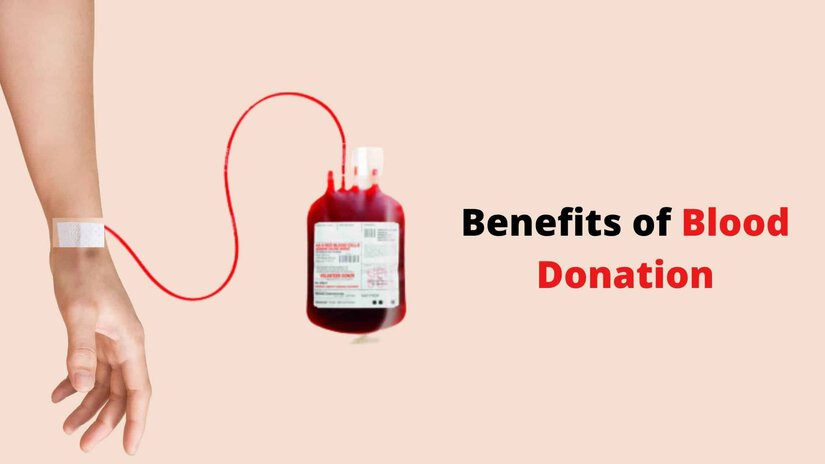Blood Donation: How Your Generosity Saves Lives

Blood donation is a critical aspect of healthcare that helps save countless lives each day. This selfless act of donating blood is an essential part of the medical industry, and it plays a significant role in ensuring that those in need of blood transfusions receive the necessary treatment.
Blood donation is an act of generosity that can have a positive impact on society as a whole and can help improve the quality of life of many individuals.
This article aims to provide an in-depth understanding of the importance of blood donation, the donation process, and the benefits of being a blood donor. It will also address common myths and misconceptions surrounding blood donation and its impact on patients.
Additionally, this article will provide tips for a successful donation and ways to get involved and support this critical cause. Through this article, we hope to encourage more people to donate blood and help save lives.
Key Takeaways
- Blood donation is a critical process that saves lives and treats medical conditions.
- Eligibility criteria ensure the safety of both donors and recipients, and donated blood is screened for infectious diseases.
- Regular blood donation has health benefits and stimulates the production of new blood cells, helping maintain good health.
- Advocacy campaigns and volunteering can increase donations, and supporting organizations can ensure blood donation remains a priority, as blood transfusions are lifesaving.
The Importance of Blood Donation
The significance of blood donation resides in its capacity to provide a crucial resource for patients in need of blood transfusions, enabling them to receive life-sustaining treatment. Blood transfusions are necessary for a wide range of medical conditions, including trauma, surgeries, cancer treatments, and blood disorders. Without an adequate blood supply, patients would be at risk of complications, such as anemia, organ failure, and even death.
Blood donation is crucial for maintaining a stable and safe blood supply. Donated blood is screened for infectious diseases, ensuring that only safe blood is transfused to patients. In addition, blood donation is an act of generosity that reflects a sense of social responsibility and altruism. By donating blood, individuals contribute to the health and well-being of their communities, and may even save lives.
Therefore, promoting and facilitating blood donation is essential for ensuring access to life-saving treatments and improving public health.
Understanding the Donation Process
Understanding the process involved in donating blood can help potential donors feel more confident and prepared for their donation experience. The donation process typically involves registration, medical screening, and the actual donation. During the registration process, donors provide basic personal information and answer a series of questions about their health history. After registration, donors undergo a medical screening where their blood pressure, pulse, and hemoglobin levels are checked to ensure they are healthy enough to donate. Once deemed eligible, donors are taken to a donation area where a trained professional will insert a sterile needle into their arm to collect the blood. The process takes about 10-15 minutes and donors are encouraged to relax, hydrate, and eat a light snack before leaving.
To encourage more people to donate blood, it is important to create an emotional connection with the audience. One way to do this is by incorporating a table that shows the impact of blood donation on saving lives. The table below highlights the number of lives that can be saved by donating different blood components. For instance, one whole blood donation can save up to three lives, while platelets from one donation can help five adults or one child with leukemia. By seeing how their donation can make a difference in the lives of others, potential donors may feel more motivated to donate and help those in need.
| Blood Component | Number of Lives Saved |
|---|---|
| Whole Blood | Up to 3 |
| Platelets | 5 adults or 1 child with leukemia |
| Plasma | 18 different treatments |
| Red Blood Cells | 3 premature babies |
Who Can Donate Blood
Eligibility criteria play a crucial role in determining who can contribute to a life-saving cause. Anyone who wants to donate blood must meet certain requirements to ensure the safety of both the donor and the recipient. The eligibility criteria are set by regulatory bodies such as the Food and Drug Administration (FDA) and the American Association of Blood Banks (AABB).
One of the most important factors in determining eligibility is the donor’s health status. Donors must be in good health and free from certain medical conditions that could pose a risk to the recipient. Other factors that may disqualify a donor include recent travel to certain countries, recent tattoo or piercing, and certain medications.
It is important to note that eligibility criteria may vary depending on the blood collection agency, so it is always best to check with the agency beforehand to ensure that you meet the requirements.
By adhering to the eligibility criteria, blood collection agencies can ensure that the blood supply remains safe and effective for those in need.
Donating blood is a selfless act that can save lives. However, not everyone is eligible to donate. Eligibility criteria are in place to ensure the safety of both the donor and the recipient. Anyone who wants to give blood should check with the blood collection agency beforehand to ensure they meet the requirements and can contribute to this life-saving cause.
Benefits of Being a Blood Donor
Being a regular blood donor has been linked to various health benefits, including reduced risk of cardiovascular disease and improved mental health.
According to research, donating blood can help reduce the amount of iron in the body, which can be beneficial for individuals who have high levels of iron in their blood. High iron levels in the body have been associated with an increased risk of heart disease. By reducing the amount of iron in the body through blood donation, an individual can potentially lower their risk of developing heart disease.
Additionally, donating blood has also been linked to improved mental health. Studies have shown that blood donors have a reduced risk of depression and anxiety. This is thought to be due to the positive feeling that comes with helping others. Donating blood can also be seen as a form of altruism, which has been linked to improved psychological well-being.
Overall, being a blood donor not only helps save lives but can also provide health benefits for the donor.
Common Myths and Misconceptions
Misconceptions surrounding the process and effects of blood donation continue to persist despite efforts to educate the public.
One of the most common myths is that donating blood is painful. However, the pain is minimal and brief, similar to a prick of a needle. In fact, most donors describe the sensation as nothing more than a slight discomfort.
Another myth is that one cannot donate blood if they have a medical condition such as diabetes, high blood pressure, or cancer. While some medical conditions may affect eligibility, most people with such conditions can still donate blood after a thorough screening process.
Another common misconception is that donating blood can cause a person to become weak or develop anemia. This is not true as the body can quickly replenish the lost blood volume. In fact, donating blood can stimulate the production of new blood cells and help the body maintain good health.
Lastly, some people believe that donating blood can lead to the transmission of diseases such as HIV or hepatitis. However, all blood donations are screened for infectious diseases before being used for transfusions. The screening process is highly regulated and ensures that only safe and healthy blood is used.
The Impact of Blood Donation on Patients
The act of voluntarily giving a part of oneself for the benefit of others has far-reaching effects on the recipients of blood transfusions. Blood transfusions have become a routine medical procedure used to treat various conditions such as cancer, severe anemia, and bleeding disorders.
The availability of safe and adequate blood supply is essential in ensuring that patients receive the care they need. Blood donation is a crucial component of this process, as it provides a reliable source of blood for transfusions. The impact of blood donation on patients cannot be overstated, as it often means the difference between life and death.
Patients who require blood transfusions often face serious health challenges, and the availability of blood can make a significant difference in their outcomes. Blood donors play a critical role in ensuring that patients receive the care they need. The impact of blood donation can be life-saving, especially for those patients who require frequent transfusions.
Moreover, blood donation allows medical professionals to perform complex surgeries and procedures that would otherwise be impossible without a reliable source of blood. Ultimately, the act of donating blood saves lives and has a profound impact on the health and well-being of patients.
Tips for a Successful Donation
One effective approach to ensure a successful blood donation is to hydrate adequately before and after the donation process. Drinking plenty of water helps to replace the fluids lost during the donation and reduces the risk of dehydration. It is advisable to avoid caffeine and alcohol before donating blood as they can cause dehydration and affect the quality of the donated blood.
Furthermore, eating a balanced meal, especially foods rich in iron, before the donation can help maintain healthy iron levels in the body and reduce the risk of a low hemoglobin count.
In addition to proper hydration and nutrition, it is important to follow the guidelines provided by the blood donation center. This includes filling out the required forms and answering the screening questions truthfully and accurately. It is also important to inform the staff if you have any medical conditions or are taking any medications. Following these guidelines can help ensure the safety of both the donor and the recipient of the donated blood.
Finally, it is important to rest and avoid strenuous activities for a few hours after the donation to allow the body to recover fully. By following these tips, donors can ensure a successful blood donation and help save lives.
Ways to Get Involved and Support the Cause
Participating in advocacy campaigns, volunteering, and supporting organizations that promote blood donation can be effective ways to get involved in the cause and make a difference in the lives of those in need.
Advocacy campaigns can be an effective way to raise awareness of the importance of blood donation and encourage more people to donate. These campaigns can take the form of social media campaigns, public service announcements, or community events. By getting involved in these campaigns, individuals can help spread the word about the benefits of blood donation and encourage others to get involved.
Volunteering at blood drives or blood donation centers is another way to support the cause. Volunteers can help with tasks such as registration, donor screening, and providing refreshments to donors. By volunteering, individuals can help ensure that the donation process runs smoothly and efficiently, ultimately increasing the number of donations.
Finally, supporting organizations that promote blood donation can also be an effective way to get involved. These organizations may conduct research, provide education and resources to donors, or advocate for policies that support blood donation. By supporting these organizations, individuals can help ensure that blood donation remains a priority and that those in need have access to lifesaving blood transfusions.
Conclusion
In conclusion, blood donation plays a crucial role in saving lives, especially in emergency situations. Understanding the donation process and debunking common myths and misconceptions can encourage more people to become donors.
Any healthy individual who meets the eligibility criteria can donate blood, and the benefits of being a donor are numerous, including reducing the risk of heart disease and cancer. The impact of blood donation on patients cannot be overstated, as it can mean the difference between life and death.
Donating blood is a simple act of generosity that can have a profound effect on someone’s life. There are many ways to get involved and support the cause, such as organizing blood drives or volunteering at blood banks.
By donating blood, individuals can make a significant contribution to society and help save lives.








